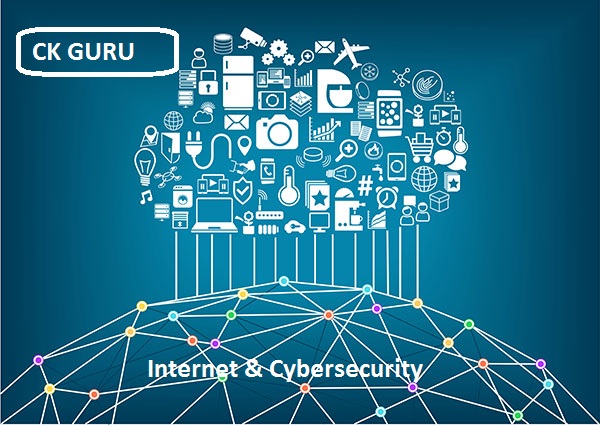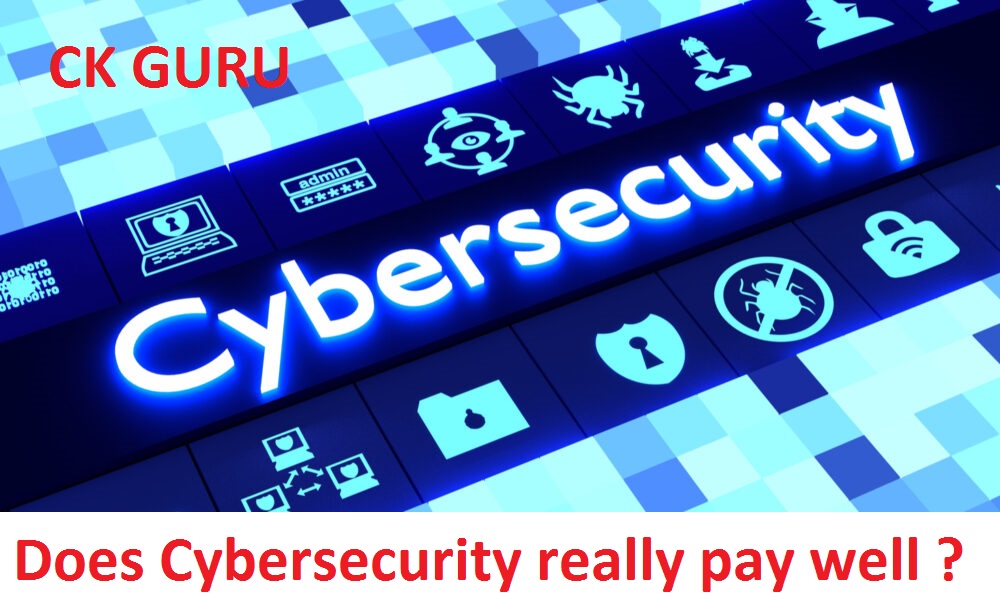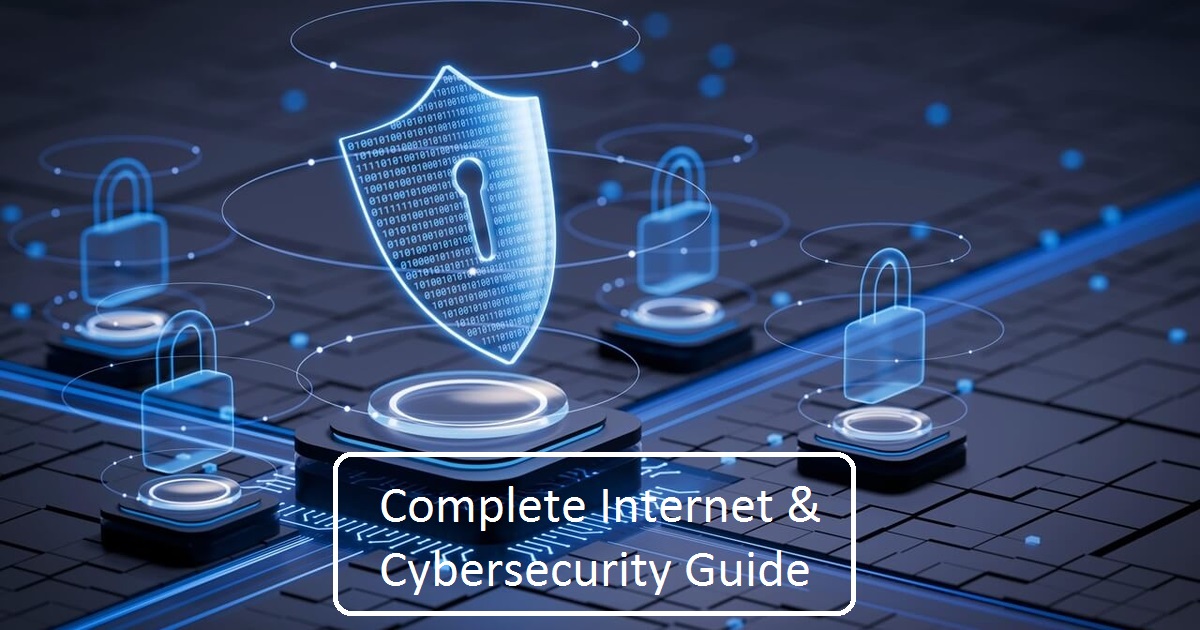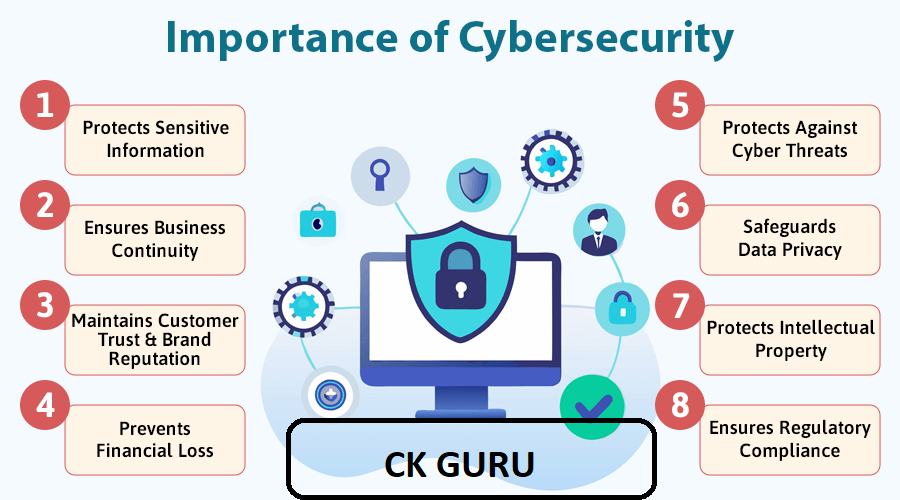Complete Internet & Cybersecurity Guide (2025 Edition)
Cybersecurity is no longer just a technical field reserved for IT professionals. In today’s connected world, it has become a necessity for businesses, governments, and individuals. From protecting personal emails to defending corporate networks, the demand for cybersecurity knowledge is growing rapidly.
This Complete Internet & Cybersecurity Guide answers the most frequently asked questions about cybersecurity—whether you’re a beginner, a student, or someone planning a career in this fast-growing industry.

What is an Example of Cybersecurity?
Cybersecurity examples are everywhere around us. A common one is multi-factor authentication (MFA), where you confirm your identity using both a password and a code sent to your phone. Other strong examples include firewalls, VPNs, data encryption, and phishing detection tools. Together, they protect devices, networks, and personal data from hackers and online threats.
Is Cybersecurity Hard?
Cybersecurity can feel challenging at first because it combines technology, risk management, and constant learning. However, the basics are approachable for beginners. If you enjoy solving puzzles, spotting risks, and learning new tools, you’ll find cybersecurity both rewarding and exciting.
What Exactly Does Cybersecurity Do?
At its core, cybersecurity ensures digital safety. It prevents unauthorized access, data theft, and system damage. Professionals handle tasks such as:
- Setting up firewalls & intrusion detection
- Monitoring unusual activity
- Patching vulnerabilities
- Responding to breaches
- Writing security policies
How Can I Learn Cybersecurity?
Learning cybersecurity today is easier than ever. You can start with free YouTube tutorials, blogs, and online labs like TryHackMe and Hack The Box. Once you understand the basics, aim for certifications like:
- CompTIA Security+ (beginner-friendly)
- Certified Ethical Hacker (CEH)
- CISSP (advanced)
Practical experience, such as internships and home labs, is equally valuable.
Does Cybersecurity Require Coding?
Not all cybersecurity jobs require coding, but having programming knowledge boosts your career. Roles like penetration testing and malware analysis often use Python, Bash, and JavaScript. Even if you don’t code daily, understanding scripts makes you more effective at automating tasks and analyzing threats.

How Many Types of Cybersecurity Are There?
Cybersecurity is divided into multiple categories:
- Network Security – protects internal & external networks
- Application Security – ensures safe apps & software
- Cloud Security – guards online storage & services
- Information Security – protects data privacy & integrity
- Operational Security – secures daily IT processes
- Disaster Recovery & Business Continuity – prepares for recovery after attacks
- Critical Infrastructure Security – protects essential systems like power grids
What is Cybersecurity in Simple Words?
Think of it like this: Cybersecurity is a digital lock on your computer, phone, or network. Just like you lock your house to stop burglars, cybersecurity tools lock your digital devices to keep hackers away.
How to Become a Cybersecurity Analyst?
Start with a strong IT and networking foundation, then move into security certifications. Get real-world practice through competitions, internships, or lab environments. Cybersecurity analysts need to:
- Monitor systems
- Detect vulnerabilities
- Respond to incidents
- Report and fix issues

Is Internet Security the Same as Cybersecurity?
Not exactly. Internet security deals only with online threats like phishing and unsafe websites. Cybersecurity is broader, covering offline protection too—such as securing USB devices, local servers, and private databases.
What are the Basics of Cybersecurity?
The fundamentals of cybersecurity include:
- CIA Triad – Confidentiality, Integrity, Availability
- Strong Passwords – avoid weak or repeated ones
- Firewalls & Antivirus – basic protective shields
- Encryption – locks data from outsiders
- Awareness – teaching users how to spot scams
What is a Cybersecurity Course?
Cybersecurity courses range from short bootcamps to full university degrees. They cover topics like ethical hacking, cryptography, network defense, and incident response. For career changers, online certifications are the fastest route.
Does Cyber Mean Internet?
The word “cyber” is short for cybernetics and refers to anything related to computers, digital systems, or virtual networks. While it often refers to the internet, it can also mean offline systems like industrial networks or local servers.
What Degree Do You Need for Cybersecurity?
Many employers prefer degrees in Computer Science, Information Technology, or Cybersecurity. However, today, certifications and real skills often matter more. Some companies hire without a degree if you can prove your skills.
Is Cybersecurity a Serious Job?
Absolutely. Cybersecurity is considered a critical industry because it protects governments, businesses, and individuals from growing cyber threats. Data breaches cost companies millions, making cybersecurity professionals vital.
How Long Does It Take to Learn Cybersecurity?
- 3–6 months: Learn the basics with consistent study
- 1–2 years: Gain proficiency with certifications & practice
- Several years: Achieve mastery in advanced fields like cryptography
Which Pays More – Cybersecurity or IT?
Cybersecurity typically pays more than general IT because it requires specialized skills and carries higher responsibilities. Entry-level cybersecurity salaries often beat mid-level IT salaries, and senior positions can reach six figures.
Does Cybersecurity Require Math?
Basic math helps with encryption, algorithms, and data analysis. While not all roles need advanced math, careers in cryptography or data forensics rely heavily on it.
What is the Highest Paid Security Job?
The Chief Information Security Officer (CISO) role is the highest paid, often exceeding $150,000+ annually. Other high-paying roles include penetration testers, cloud security architects, and consultants.
How to Get Into Cybersecurity Without a Degree?
Focus on certifications, self-study, and real-world projects. Join bug bounty programs, open-source projects, or security forums. Employers value demonstrated skills—even without a formal degree.
What are the 12 Most Common Types of Cyber Attacks?
Some of the most frequent cyber attacks include:
- Phishing
- Malware
- Ransomware
- DDoS attacks
- SQL Injection
- Man-in-the-middle attacks
- Zero-day exploits
- Password attacks
- Insider threats
- Spyware
- Cryptojacking
- Social engineering
Is Cybersecurity Stressful?
Certain roles like incident response can be high-pressure, since you must act fast during breaches. But many professionals find the challenge exciting and rewarding.
Is Cybersecurity a Good Career in 2025?
Yes—cybersecurity remains one of the fastest-growing and highest-paying careers worldwide. With more companies shifting online, the need for security professionals will only keep increasing.
What are the 5 C’s of Cybersecurity?
The 5 C’s are:
- Change – Adapt to new threats
- Compliance – Follow security laws and standards
- Cost – Balance investment with risk
- Continuity – Keep systems running even under attack
- Coverage – Protect every part of the system
What are the Three Rules of Cybersecurity?
- Protect your data
- Use strong authentication
- Stay updated with patches and tools
Is Networking and Cybersecurity a Good Career?
Yes. Networking is the foundation, and cybersecurity builds on it. Combining both skills makes you more competitive and valuable in the job market.
Conclusion – Your Cybersecurity Roadmap for 2025
Cybersecurity is more than just a career—it’s a critical life skill in today’s digital world. Whether you’re a student, professional, or business owner, learning the basics of cybersecurity can protect your money, identity, and future.
As the internet continues to expand, the demand for cybersecurity professionals is skyrocketing. Start small, build your skills, earn certifications, and stay updated with the latest cyber threats. The opportunities in 2025 and beyond are limitless.




